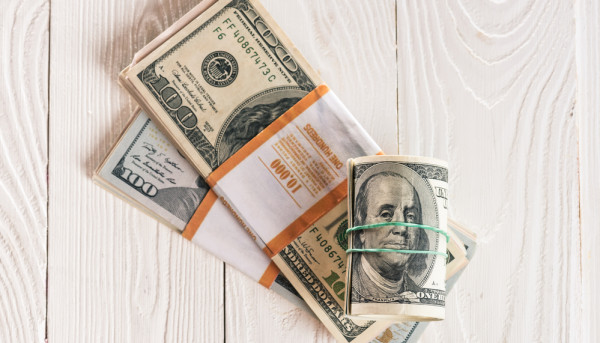How to Make a Budget - Keeping Track of Your Expenses

How to Make a Budget - Keeping Track of Your Expenses
To keep track of your expenses, create comprehensive expense categories. These will help you better manage your money and keep you motivated. Monthly expenses can vary significantly, so it's important to have a good balance. Keeping track of your expenses before the month ends can help you stay on track. It also helps to plan ahead of time.
Making adjustments to your budget
When making a budget, it is necessary to make adjustments for changes in your financial situation. These changes may include moving, getting married, getting divorced, or having a baby. Some of these changes are permanent, and some may be temporary. For example, if your income changes, you may need to make adjustments for the extras that you want to buy.
Your expenses should not exceed your income. You can make adjustments if you see that you have too many expenses. This doesn't necessarily mean that you should start penny-pinching, but it might mean looking again at your discretionary expenses. You might also need to make some cuts to reduce your debt.
The main goal of a budget is to keep you out of overwhelming debt. It also helps you build financial freedom. By making and sticking to a budget, you can achieve these goals. Once you've created your budget, you should review your expenses and your goals to see if you need to make any adjustments. For example, if you're living on your own for the first time, you may not need a new car. In addition, you might want to start an investment account.
You should also review your spending habits and compare it to your income. If your income is lower than your expenses, you should cut back on your discretionary spending to make sure you're not exceeding your budget limits.
Tracking transactions regularly
When you're making a budget, one of the best ways to keep track of your spending is to track transactions. This will help you avoid overspending and identify fraud. Keeping track of your purchases will also help you allocate money for various goals such as a college fund or a down payment on a new house. Fortunately, there are many ways to do this.
Using an online service can help you track your expenses. These services allow you to record all your transactions in one convenient place, which will eliminate the need for you to write down each transaction and total them up at the end of the month. This helps you enjoy greater financial freedom without the worry of running out of money. Keeping track of your finances can also make it easier to secure a loan and prevent you from being left scrambling during tax time.
Keeping track of your expenses and income is a crucial part of budgeting. Begin by logging all your income into your budget, including any side jobs or sales you may have. Next, track your expenses, including any monthly bills, gas tank expenses, rent expenses, concert tickets, etc. Once you have your monthly records, you can adjust your budget accordingly.
Another great way to keep track of your spending is by checking your credit card and bank statements regularly. You can even use an app to keep track of your expenditures. You can also use paper receipts to make sure you don't miss any expenses. This way, you can see exactly where your money is going and keep yourself accountable.
Creating a zero-based budget
Creating a zero-based budget is a great way to get more control over your money. It helps you stay on top of your spending and helps you meet your financial goals. By using zero-based budgeting, you'll be less likely to overspend, which is helpful for people with tight budgets or liberal spending habits.
The first step in creating a zero-based budget is to gather all your monthly income and expenses. Also, make sure you list your savings goals. You'll need to track your spending to ensure that every penny is going towards your goals. To do this, download an expense tracking app. These apps help you categorize expenses and analyze your spending habits.
Creating a zero-based budget can help you eliminate unnecessary expenses, increase profits, and save money. It can also help you strategize better how to spend your money. It's important to note that creating a zero-based budget isn't easy. It's a detailed process that requires time. As a small business owner, you'll need to decide whether the time and effort is worth the results.
The first step in creating a zero-based budget is identifying what your fixed and variable expenses are. After determining these costs, subtract them from your after-tax income. Then, allocate the remaining funds to savings and debt reduction. The goal is to make the income-to-expense ratio equal zero.
Using a spreadsheet
One of the best ways to create a budget is to use a spreadsheet. These programs can help you create a budget and track expenses. You can start by plugging in the fixed costs and estimate the variable expenses. You can adjust the amounts later if you find that there are changes in the costs. You should also keep track of all your expenses for a year.
Another good use for a spreadsheet is to keep track of the expenses and income you make in a month. This will allow you to see how much you're actually spending in each category. You can also include your retirement savings and health insurance, as well as expenses for your car loan, gym memberships, and restaurant meals. Many spreadsheets even have charts to help you visualize your spending.
You can find free or inexpensive spreadsheets online. The spreadsheets will help you stay on top of your expenses and save for large purchases. You can also use them to track your spending habits and set goals for the future. If you're looking to create a budget, a spreadsheet can help you stay on top of your finances and make it easier to stay on track.
Another benefit of using a spreadsheet is that it's simple to use. The software comes with templates and can help you create a budget in a few minutes. Many spreadsheet programs offer a personal budget template, which includes the spending categories, design, and formulas you need to create a budget. If you'd rather customize your own budget, you can also use a template available in Microsoft Office.
Using a credit card or debit card for a few months
Using a credit card or debit card to make a budget can be a great way to get a handle on your finances. It can also help you to pay off your balance each month. However, you need to be aware of the consequences of using credit. You should always make the balance payment on time to avoid accumulating debt. You should also limit your credit card purchases so you don't exceed your budget.
Using a credit card or debit card to make a budget can also improve your credit score. This is because your spending is reflected in your credit score. Credit card debt can hurt your credit score and add unnecessary financial stress to your budget. It is a good idea to mark your credit card due dates on your calendar so that you don't miss any payments. If you can't make your payment on time, consider paying it off early or breaking it up into several smaller payments.
When making a monthly budget, you may find it hard to stick to it. Using a debit card or credit card is a great alternative if you can't stick to a traditional budget. However, you should make sure you keep up with your payments on your credit card because missed payments will affect your credit score. Furthermore, if you cannot make your credit card payments on time, you will accrue debt from interest.
Using a personal budgeting app
Personal budgeting apps can be a great way to manage your finances. These apps work by analyzing your spending history over time. They can help you create a spending plan, save money, and make decisions that won't break the bank. They can also help you manage unexpected expenses and make sure you're not spending more than you make.
Each budgeting app has its own methodology and features. Some let you connect bank accounts and set personal savings goals. Others provide detailed reports and make it easy to track your spending. This information is important in helping you decide where to allocate money for your specific goals. However, before downloading an app, you should first consider your financial situation and set short-term and long-term goals.
Some of the most popular budgeting apps use customizable spreadsheets that you can share with other household members. Some of the budgeting apps are free and others require a subscription. Google Sheets allows you to make a budget on your own, but it lacks some important features like automatic financial data collection.
YNAB is another budgeting app with a lot of benefits. Besides creating a budget based on your income, YNAB allows you to track your spending in real-time. You can also link your checking and savings accounts as well as your credit cards and loans. The app works on your desktop, iPhone, iPad, and Apple Watch.











